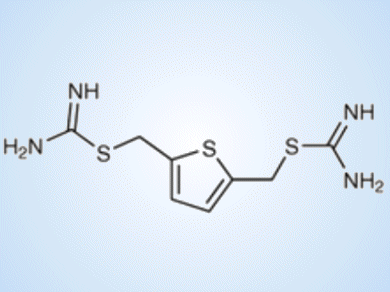Alzheimer’s, a severe neurological disease, is characterized by the progressive loss of neurons. This phenomenon originates from the cleavage of the amyloid-precursor protein (APP) into toxic fragments that accumulate in neurons, thereby causing their death.
Scott Small, Columbia University, New York, USA, and co-workers discovered a way to prevent this process. When APP localizes in specific cellular organelles (endosomes) it is cleaved into toxic fragments. Thus, the researchers developed a strategy to drive APP out of this cellular compartment. The scientists developed R55 (pictured), a small molecule that acts as a chaperon and enhances the stability and activity of retromer, a multiprotein complex that transports APP away from endosomes. As a consequence, R55 reduced the cleavage of APP and, therefore, the death of neurons.
R55 may represent a novel therapeutic option for treating Alzheimer disease.
- Pharmacological chaperones stabilize retromer to limit APP processing,
Vincent J Mecozzi, Diego E Berman, Sabrina Simoes, Chris Vetanovetz, Mehraj R Awal, Vivek M Patel, Remy T Schneider, Gregory A Petsko, Dagmar Ringe, Scott A Small,
Nat. Chem. Biol. 2014.
DOI: 10.1038/nchembio.1508




